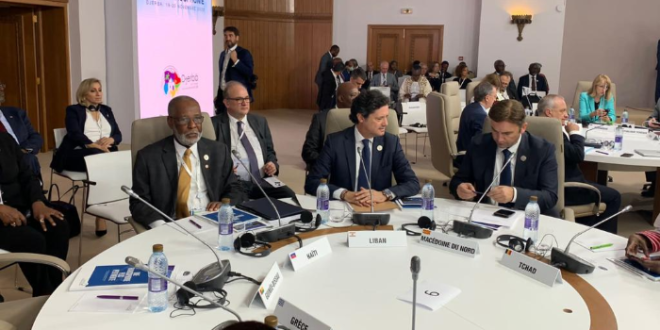Caretaker Minister of Information, Ziad Al-Makary, currently representing Lebanon at the Francophone Summit in Djerba, Tunisia, took part in a closed meeting held yesterday between heads of states and governments, heads of delegations of member states and governments of the World Organization of La Francophonie, entitled: “Francophonie of Tomorrow”.
In his delivered word during the meeting, Al-Makary said: “Ever since the establishment of the first intergovernmental organization for the Francophone countries, with significant contribution by late Lebanese President Charles Helou, passing through the signing of the Linguistic Charter in Montreux in 2010, and finally the opening of the office of the International Organization of the Francophonie in Beirut, Lebanon has shown in all these stages its attachment to the Francophonie which carries many values.”
He added: “The successive political and economic crises that Lebanon is going through threaten its entity and cultural identity, and they pose an imminent danger, which could be fateful if no measures are taken in this regard. We add to all these crises the Syrian refugee crisis, which is exhausting the country that has been enduring an economic and social crisis for the past 3 years.”
Al-Makary, thus, called on the international community to “prevent Lebanon from collapsing by saving its cultural heritage, supporting the media, education, cultural and creative industries, and by helping it restore the citizen’s trust in the state.”
“The opening of the Francophone Organization Center in Beirut is a glimmer of hope in the darkest nights of Lebanon, and this representation reminds us of the peculiarity of multilingual Lebanon, which is a model of cultural pluralism,” the Information Minister underscored.
Finally, Al-Makary reiterated Lebanon’s full commitment to placing the office of the Francophone Organization in Beirut at the disposal of the Francophone in the Middle East, praising the appointment of the Armenian diplomat Leon Amerignian to be in charge of the Center, deeming it “a symbolic choice that confirms the importance of the Armenian presence in Lebanon, a sect very closely connected to La Francophonie.”
NNA
 Lebanese Ministry of Information
Lebanese Ministry of Information



